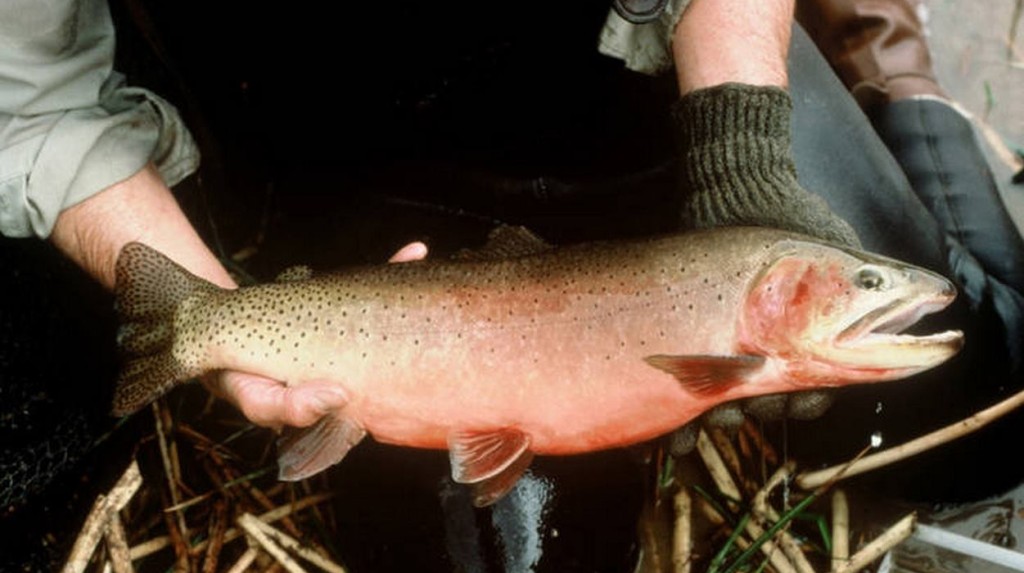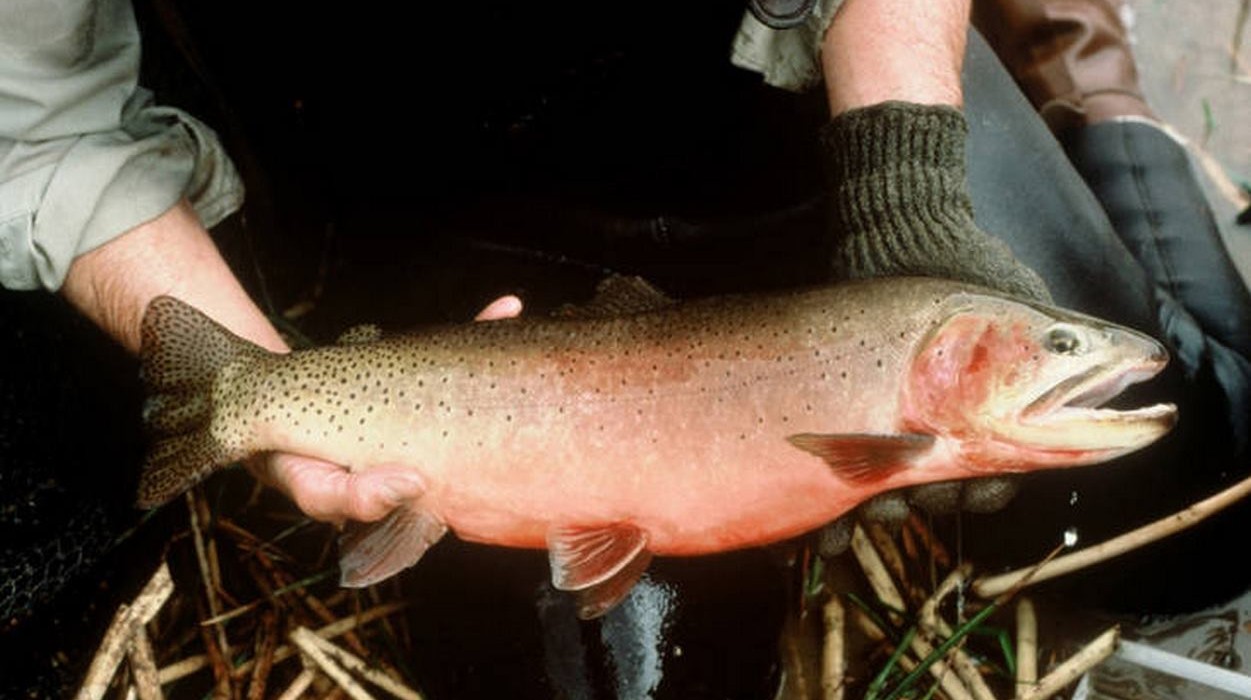
The greenback cutthroat trout, Colorado’s state fish, is reproducing in the wild again after a period where it was actually believed to have been lost.
Presumptively listed as extinct in the 1930s, small populations were found in various parts of the state’s river systems, though they were thought of as hybrids.
In 2012 along a 3.5 mile section of Bear Creek, Colorado Parks & Wildlife conservationists found a small population of purebred greenback cutthroat trout, sparking a flurry of activity.
Usually when a Critically Endangered species recovers, it’s because of a nail-biting intervention to try and get a handful of captive individuals to breed in a zoo, and this is no different.
“Each spring, CPW aquatic biologists have strapped on heavy electro-fishing backpacks to painstakingly hike up Bear Creek to catch greenbacks and collect milt and roe—sperm and eggs,” CPW said.
Taking the goodies, CPW have successfully managed to breed the fish in a trout hatchery, and by 2016 they started a repopulating effort in Herman Gulch, which are now adults and reproducing on their own.
“This is just another affirmation that our conservation practices work and that we can save species on the brink,” Kevin Rogers, an aquatics researcher for Colorado Parks and Wildlife, told CPR.org.
The Colorado chapter of Trout Unlimited is also having success with a breeding program, having released 13,000 small fry back in 2017 into four sites around Loveland Pass and Cameron Pass.
Introduction of non-native rainbow, brown, and brook trout in Colorado streams have pushed the native greenback cutthroat out of much of its old habitat, although sometimes the relationship isn’t so negative. Rainbow trout have spawned with greenback cutthroat and created fertile hybrids called “cutbows.”
Sickly green with rusty spots, the state fish can grow up to around 18 inches and 10 pounds. It is reputed to have the most brilliant spawning coloration of any cutthroat trout species.
SHARE This Great Fisherman’s News On Social Media…




















